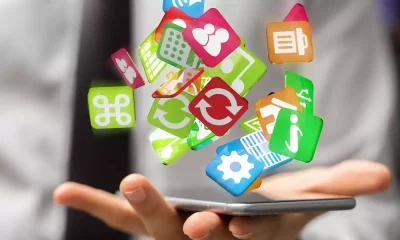Security
Protecting Your Data From Cybercrime

Technology is an enabler, and we’re running our businesses smarter and more efficiently than ever before. Devices such as tablets like iPads and smartphones keep us connected wherever we may be and what this means is we’re spending a lot more time online. For example the average American spends 24 hours online every week.
The more time we spend online, the higher the risk we will be victims of cybercrime and viruses like malware. Ignorance is not bliss ever when it comes to keeping your data safe and out of the hands of online hackers. Here are a few tips to keep your systems secure.
1.Systems & Software
Never ignore the software updates. While it seems they’re happening all the time, if there is a series of requests, the developers have applied fix packs to remove bugs and security holes that are usually identified after a breach.
So, you absolutely have to apply the update as and when requested.
The most popular operating systems from Microsoft and Apple are evolving all the time to attempt to catch up. Unfortunately, it is a game of catch-up as the hackers are always one step ahead. All your devices need systems updates applied, so don’t delay – just do it!
2. Links and Attachments in Email
Computer viruses are found in emails and in particular links within the email message and also in file attachments. Never click a link or open an attachment without first assessing it. If in doubt, if you know the sender, ask them if they sent the email to you and the attachment.
There is so much spam in email. However, it can be managed by a spam filter, and a sure way of working out if a link is safe to click (when it’s from a sender, you know) is to hover your mouse over it, and the link address will be presented. As a rule of thumb, though, avoid clicking any links in emails from unknown senders and never open attachments without first checking their source.
Your data is valuable and cybercriminals want it. They work around the clock to try and get it, and email has been a channel of success for them. Governments have put in data protection laws like the anti-spam act and the pending GDPR. However, criminals are not exactly law-abiding, so these laws are for everyday legal entities. Spammers and hackers will carry on as usual, attempting to steal whatever they can and using email to catch out everyday users.
3. Antivirus Software
Free anti-virus software like AVG Antivirus is a must. Install it and use it to scan your computer to identify viruses that can be quarantined and deleted. It’s amazing what’s lurking, undetected. AVG also have other products which are useful – really using this type of software is a no-brainer, and of course, it too needs regular software updates but they can be set to update automatically and usually take only a minute or two when updating.
4. Off-Site Back Ups
Again backing up your data is a no-brainer, but so many users still don’t do it. Hardware and software is a lot more reliable now but backups are done not one for computer or system crashes. If your computer is infected with a virus and you have an offsite backup, you can easily restore your data, etc from the backup.
If your data is wiped due to your system being compromised once again, an offsite backup can be used so there’s little downtime. Backups are like insurance. They are peace of mind that if the very worst happens and you lose the lot, you can get it back. So take the time to back it up on a separate hard drive, ideally offsite.
Finally, a mention of passwords. Use a strong password generator like Google Chrome’s free strong password generator and update your passwords regularly.









